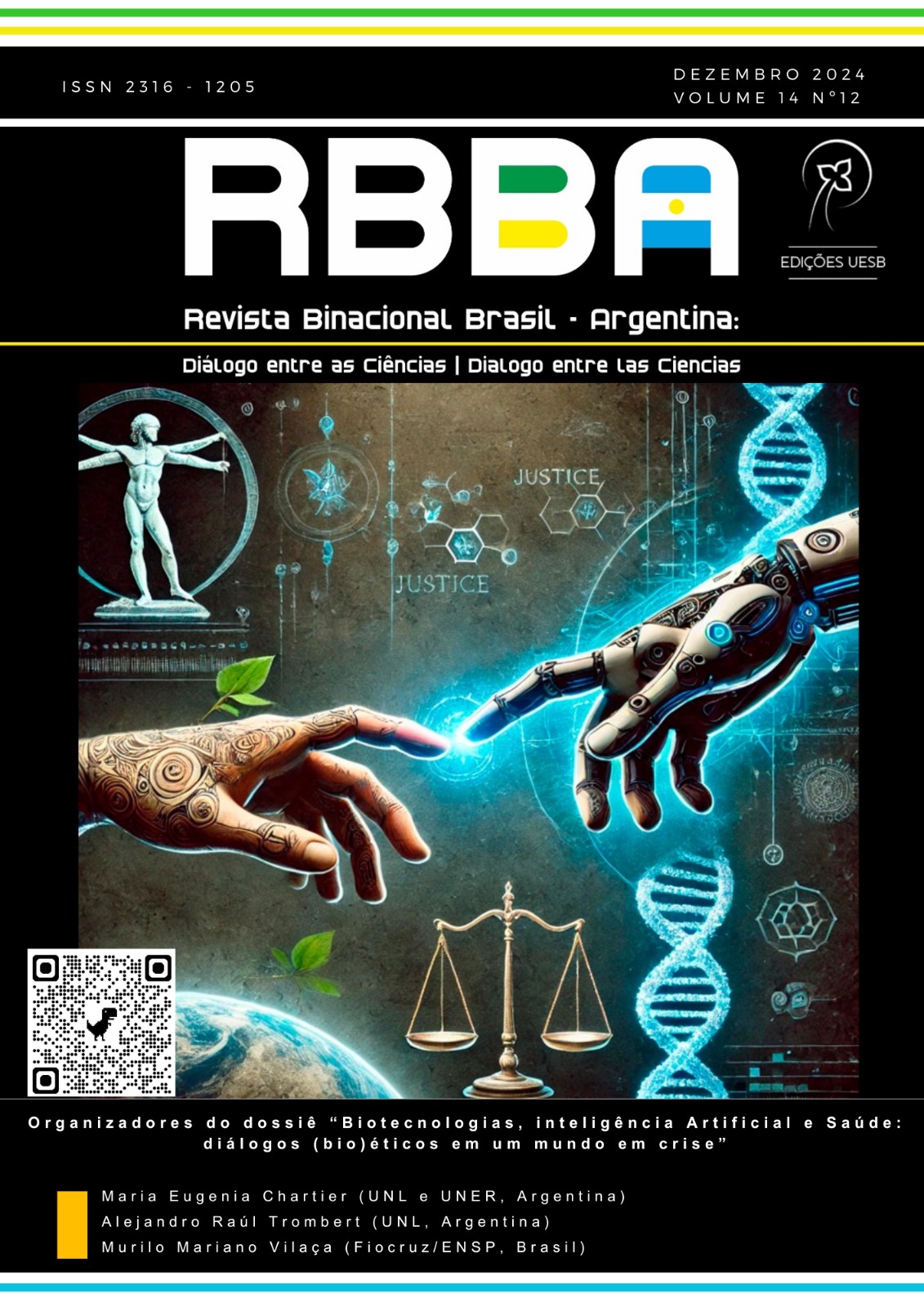Artificial intelligence and its implications in the field of health, work, reproductive genetic technologies and the change of values: an interview with Jon Rueda
DOI:
https://doi.org/10.22481/rbba.v14i2.15409Keywords:
Artificial intelligence, Human health, Reproductive genetics, JobAbstract
In this conversation, two of the organizers of this dossier conduct an interview with Doctor Jon Rueda, a moral and political philosopher interested in the study of public controversies, mainly related to morality, technoscience and the future, and often with their intersections. The interview begins with the question about whether this artificial intelligence (AI) revolution that we are experiencing can be compared with some of the other techno-scientific transformations that have occurred in the history of humanity or if, on the contrary, it presents differential features and therefore deserves a particular ethical analysis. Then it delves into some implications of AI in different areas. The first of them is human health, in which it is essential to be able to reconcile precision, efficiency and possible improvement in the quality of medical care with explainability, accountability, avoidance of bias and transparency. It ends with a critical analysis linked to the repercussions of AI for the world of work and reproductive genetic technologies.
Downloads
References
HARARI Y. N. Sapiens. De animales a dioses. Una breve historia de la humanidad. Penguin Random House, 2015.
LALUEZA-FOX C. Desigualdad: Una historia genética. Crítica, 2023.
RUEDA, J., PUGH, J., & SAVULESCU, J. The morally disruptive future of reprogenetic enhancement technologies. Trends in Biotechnology, v. 41, n. 5, p. 589-592, 2023.
RUEDA, J., RODRÍGUEZ, J. D., JOUNOU, I. P., HORTAL-CARMONA, J., AUSÍN, T., & RODRÍGUEZ-ARIAS, D. “Just” accuracy? Procedural fairness demands explainability in AI-based medical resource allocations. AI & Society, v. 39, n. 3, p. 1411-1422, 2024a
RUEDA, J., SEGERS, S., HOPSTER, J., KUDLEK, K., LIEDO, B., MARCHIORI, S., & DANAHER, J. Anticipatory gaps challenge the public governance of heritable human genome editing. Journal of Medical Ethics, 2024b.
SAUER, H. La invención del bien y del mal: Una nueva historia de la humanidad. Paidós, 2023.
SUTER, S. M. The tyranny of choice: reproductive selection in the future. Journal of Law and the Biosciences, v. 5, n. 2, p. 262-300, 2018.
Downloads
Published
How to Cite
Issue
Section
License
Copyright (c) 2024 Revista Binacional Brasil-Argentina: Dialogue between the sciences

This work is licensed under a Creative Commons Attribution 4.0 International License.






